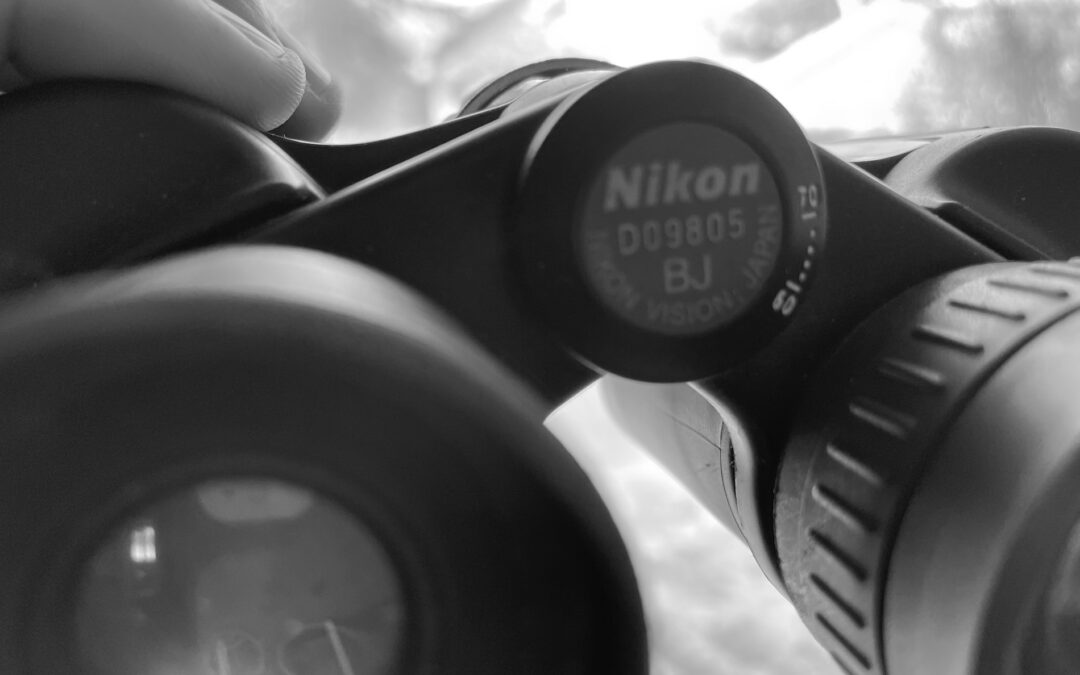Let’s continue down our absurd path by considering another aspect of perspective: salience (that which is important and mattering to us).
I regularly refer to this perspective shift as a shift in our ‘zoom magnification.’ By zooming all the way out or all the way in, the absurd comes into focus. And it happens both from an internal-out as well an as external-in view, meaning things that you affect, and things that affect you.
If we consider ourselves in relation to the very spot and time in which we occupy, then everything matters.
When we’re consumed with the minutia of everything that is immediate there is almost on overload of nuance. For example, getting ready in the morning and glancing at the calendar reveals a busy morning of scheduled appointments, timely deadlines and the always lingering probability of emergent issues. Here our perspective is focused on the next 4-5 hours.
Then, while getting breakfast ready the french press tips over and not only spills coffee all over the counter, down the cabinets and on to the floor but also splatters your clothes (of course the new white dress shirt and light slacks). Here our perspective is further focused to the immediacy of the situation and the next few seconds. Now, with this ‘zoomed-in’ level everything matters. From an internal position every action you do, every thought you have all is so narrowly focused that there is little room for anything else to draw your attention or be salient. And externally everything that next happens seems so pertinent.
While this level of focus is in itself absurd and unsustainable, absurdity is often revealed by an occurrence which is so strongly opposite.
Our example continues with you happening to check your email on the way out the door only to see a message with your lab test results. Hastily you click to see a positive result for Huntington’s disease. Suddenly that coffee spill and stained shirt seem absurd.
Now consider the other end of the spectrum. While glancing through the Tuesday Science section in the New York Times you read an article about the Chinese recovering a capsule with information gathered from space 300 million light years away. Whoa. This leads your thinking to your current situation sitting in the office preparing the overdue TPS reports. What do these reports mean? Will they be relevant next month? Next year? How about 20 years from now? Then your imagination jumps to a more self-reflective position in considering your own existence. Will you matter 20 years form now, 100, 1000, 300 million?
At this extreme level of magnification there is nothing particularly salient and nothing matters.
Your effect on things seems of little importance and any external demands (those reports) lose the importance they one had (even if that was minor to begin with).
Here absurdity may be more readily grasped as the realization of insignificance begins to take shape. We don’t necessarily need the opposite example to snap us into a recognition of the absurd here – it happens naturally. The concept of significance is a self-reflective process and forces our realization that the extreme, narrow-focused ‘zoom’ level is ridiculous, but so is our own existence.
There is no objective sense of salience. Salience, mattering, is only unto ourselves. We have no bearing on the universe, and any level other than the most ‘zoomed-out’ becomes inconsequential. And perhaps the need, or at least heavy reliance on, the narrow-focus to give us ‘meaning’ offers up an absurdity on its own.
Note: There is an assumption here of a pre-determined acceptance of this most extreme level being consequential only. But I’m also struck with the idea that how could it not be? Perhaps this is an intuition that I’ll be content accepting.
Both examples offer glimpses of what absurdity looks like. Now this ability to ‘zoom’ is a subjective illusion but requires consideration. Why and when do you choose to place the focal point? What external factors help determine this, and what internal happenings may influence your decision? The process remains a choice.
Often we do not believe a choice exists, but it does.
The choice may not be practical, but again practicality is just a pre-determined set point for that ‘zoom magnification’ level. Why do you choose to accept that level?
A safe answer may be to save yourself from the above instances of absurdity. After all wouldn’t it be maddening to go through life constantly at one end of the spectrum or the other? We must set a balance point and then focus and re-focus as we determine is appropriate.
A primary point here is to consider whether the point from where you operate is appropriate. What goes into determining appropriateness?
Consideration of these questions are what can keep us mindfully resistant to absurdity. And further, allow us to operate in the world from an intentional stance aimed at realistic goals and with a more effective path.

